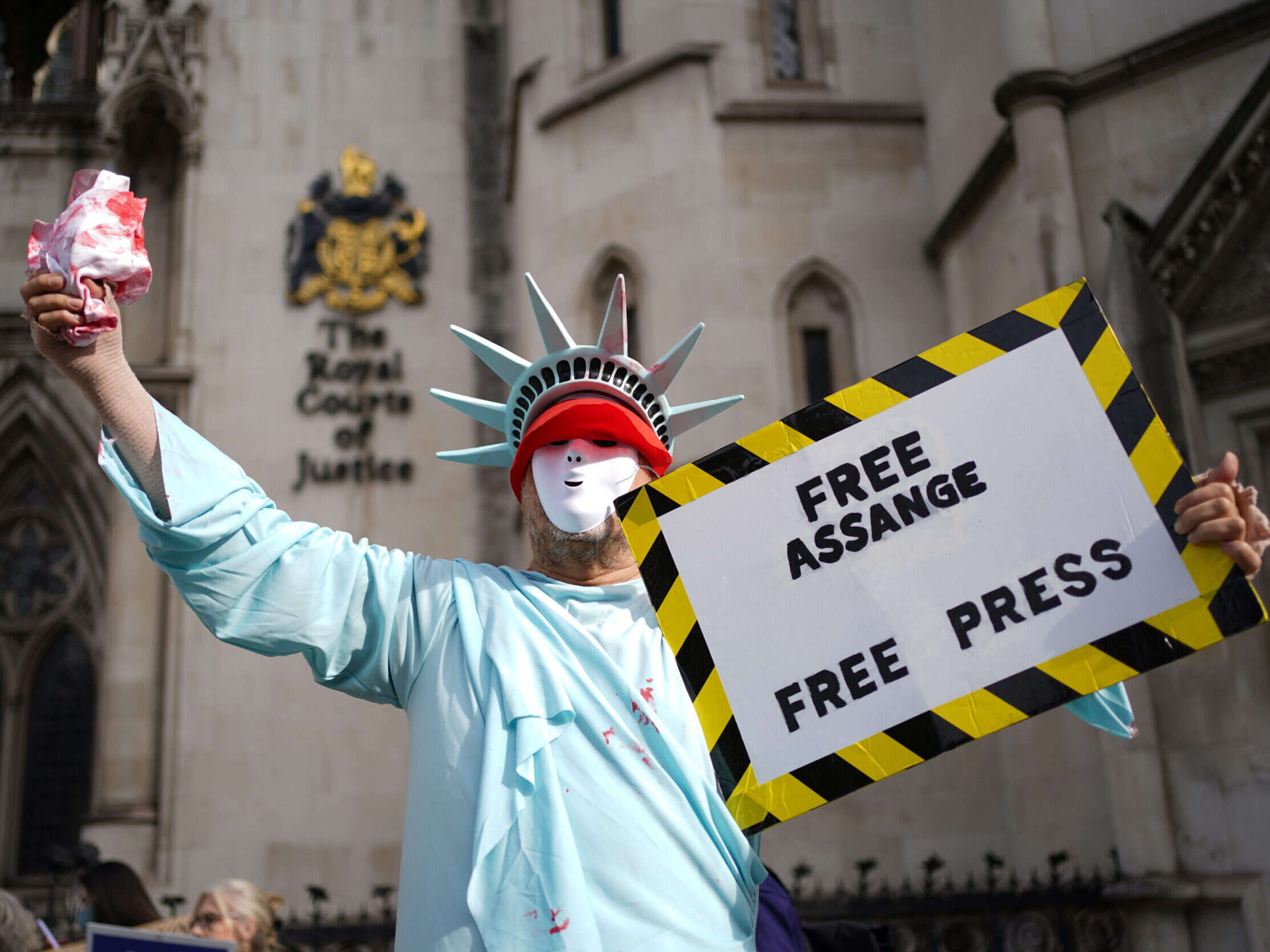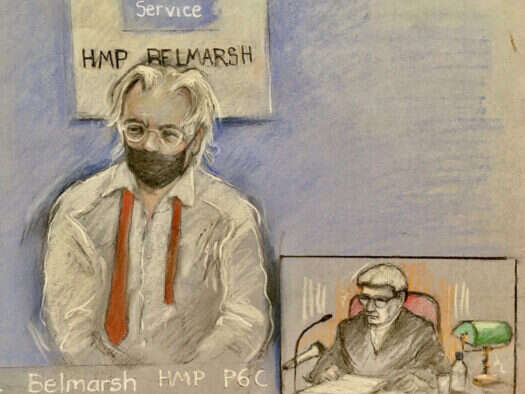
The US government has been allowed by the High Court to expand the basis of its appeal against a judge’s decision not to extradite Wikileaks founder Julian Assange.
The US government is appealing against a decision in January not to extradite the WikiLeaks founder to face espionage charges.
Assange, 50, is wanted in America on allegations of a conspiracy to obtain and disclose national defence information following WikiLeaks’ publication of hundreds of thousands of leaked documents relating to the Afghanistan and Iraq wars.
However, after a multi-week extradition hearing last year, District Judge Vanessa Baraitser ruled that Assange should not be sent to the US, citing a real risk of suicide.
The US government was previously allowed to appeal against her decision on certain grounds, which Assange’s legal team described as “narrow” and “technical”.
On Wednesday, the US made a bid at the High Court to expand the basis that can be used for its main appeal against the district judge’s decision.
Lord Justice Holroyde, sitting with Mrs Justice Farbey, granted the US permission to challenge the decision on the basis that she had attached too much weight to the evidence of Assange’s psychiatric expert Professor Michael Kopelman after he “misled” the court.
He said it was “very unusual” for an appeal court to have to consider evidence of an expert, which has been accepted by a lower court, who has been found to have misled the court.
Assange extradition appeal date set
The judge said it is “at least arguable” that the judge erred in basing her conclusions on the professor’s evidence in those circumstances.
He added: “Given the importance to the administration of justice of a court being able to reply on the impartiality of an expert witness, it is in my view arguable that more detailed and critical consideration should have been given to why (the professor’s) ‘understandable human response’ gave rise to a misleading report.”
The full appeal will be heard at the High Court on 27 and 28 October.
Dozens of Assange supporters, including his partner Stella Moris, gathered outside the Royal Courts of Justice ahead of the hearing, chanting and waving signs.
Former Labour leader Jeremy Corbyn was also seen outside the central London building, telling supporters that the US government should “wind their necks in” and allow Assange to go free.
Assange appeared at the hearing via video-link from Belmarsh Prison, wearing a dark face covering and a white shirt, with what appeared to be an untied burgundy tie draped around his neck.

Court artist sketch by Elizabeth Cook of Julian Assange appearing by video link at the High Court in London on Wednesday August 11, 2021. Picture: Elizabeth Cook/PA Wire/PA Images
In their appeal the US authorities claimed evidence from Professor Kopelman should have been dismissed or had less weight attributed to it.
Clair Dobbin QC, for the US, argued that the expert misled Judge Baraitser during the original extradition proceedings by “concealing” the fact that Assange had fathered two children during his time in the embassy until March 2020, when he “chose to deploy that information in support of his bail application”.
In her ruling, Judge Baraitser found that “the procedures described by the US will not prevent Mr Assange from finding a way to commit suicide” if he was extradited.
Dobbin argued there is a “need for anxious scrutiny” of Assange’s reported mental health.
The barrister said part of the US government’s appeal will focus on the requirement in law that an individual must be “so ill” that they are unable to resist suicide for a decision to be taken not to prosecute – or in Assange’s case, extradite – them.
She told the court: “It really requires a mental illness of a type that the ability to resist suicide has been lost.
“Part of the appeal will be that Mr Assange did not have a mental illness that came close to being of that nature and degree.”
[Read more: Julian Assange extradition puts freedom of British media to expose US state secrets at stake]
In the US government’s written argument, she continued: “He has not made the sort of serious attempt on his life or have the history of serious self-harm seen in other cases.
“He has never previously suffered from the sort of mental health condition that deprived him of the ability to make rational choices.”
Dobbin also told the court that the need for scrutiny is “substantially increased” given the background – including the “extraordinary lengths” Assange has already gone to in order to avoid extradition.
“He was willing to break the law and no cost was too great, both in terms of the cost of policing his being in the embassy and of course the cost to himself,” she said.
In the US government’s written case, Dobbin said that £16 million of taxpayers’ money had been spent to “ensure that, when Mr Assange did leave the embassy, he was brought to justice”.
In her ruling, Judge Baraitser also said there was a “real risk” Assange would be locked up at the Administrative Maximum Facility in Florence, Colorado, if convicted, which would lead to his mental health deteriorating.
However, the US has said it would consent to Assange being transferred to Australia to serve any prison sentence he may be given.
Edward Fitzgerald QC, representing Assange, told the court that Judge Baraitser, having heard all of the evidence in the case, was in the best position to assess it and reach her decision.
He said Professor Kopelman’s report, in which he did not reveal the true nature of Assange’s relationship with Moris, was given long before any court hearing and against a background of concern for the “human predicament” in which Moris found herself at the time.
The barrister said this included fears for her safety and that of the couple’s two children, after a surveillance organisation had taken DNA from their baby’s nappy, then turned its attention to Moris and plotted to kidnap or poison Assange.
Fitzgerald said: “The district judge was right to find that she had not in fact been misled, and that it was an understandable response to Ms Moris’s predicament.
“The court had become aware of the true position in April 2020.”
Picture: Dominic Lipinski/PA Wire/PA Images
Email pged@pressgazette.co.uk to point out mistakes, provide story tips or send in a letter for publication on our "Letters Page" blog






